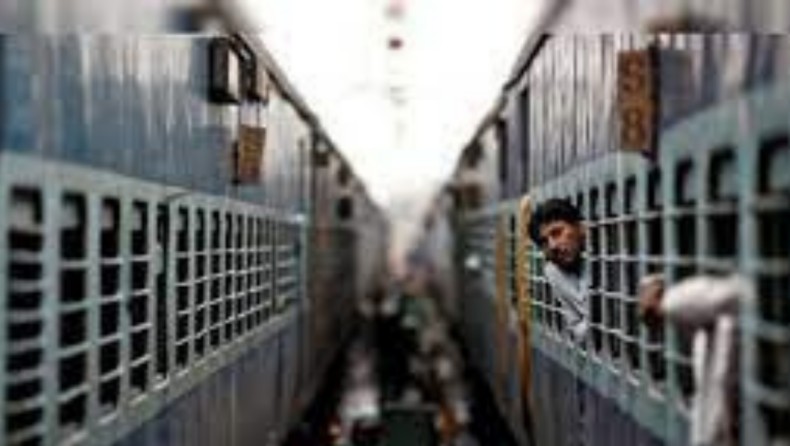Reports from the National Power Portal say that a lot of power plants owned by the National Thermal Power Corporation don’t have enough coal to make electricity.

More than 650 passenger trains are being canceled by the Indian Railways to make it easier for coal cars to move faster as the country tries to keep power plants from running out of coal and avoid a full-blown power crisis.
Protests took place outside the home of Punjab Power Minister, Harbhajan Singh, on Friday afternoon.
A total of 657 passenger train trips, including 500 mail and express train trips and 148 passenger train trips, would be canceled as a result of the railway’s decision to prioritize the transportation of coal rakes, states the numerous news reports. Over the next two months, the railways expect to increase the number of coal rakes that can move through their system.
As per the reports, “the step is just temporary, and passenger services will be resumed as soon as the situation returns to normal.” As soon as the situation returns to normal, Gaurav Krishna Bansal, an executive director at Indian Railways, said the action will be lifted as soon as possible. He said that the state-owned operator is attempting to reduce the amount of time it takes to transport coal to power facilities.
Satyendar Jain, the Delhi power minister, said on Friday that since the whole country is facing power shortages due to the lack of coal and no backup, the best response to the situation would be for the government at the national level to provide additional coal. He said that electricity cannot be preserved and that there is insufficient coal in Delhi for the next 21 days.
On Thursday, Jain held an emergency meeting at the Delhi Secretariat to talk about the coal shortage. He also sent a letter to the government, asking for enough coal for the thermal power plants.
According to the Delhi government, a disruption in power supply from the Dadri and Unchahar thermal power plants might result in the loss of a 24-hour power supply to the Delhi Metro, hospitals, and other critical institutions in the national capital. Every day, the National Power Portal (NTPC) publishes a report on coal. At many power plants owned by the National Thermal Power Corporation, there doesn’t seem to be enough coal.
On Friday, Bihar’s electricity minister, Bijendra Prasad Yadav, brought up the subject of coal scarcity as well as other issues. “There is a deficiency of roughly 1000 MW, but this will be rectified in a day or two,” said the official. He went on to say that discussions had taken place with the central government as well.
However, sources in the Union Power Ministry informed the media that if states are experiencing a power crisis, it is a result of a lack of coal supplies. “States have neglected to pay for coal, causing this problem.” The source further added that, “Power plants are not under dispute; they keep functioning.”
The Delhi government has said that only one day’s worth of coal stock remains at the Dadri-II power plant, two days’ stock remains at the Unchahar power plant, three and a half days’ stock remains at Kahalgaon, five days’ stock remains at Farakka, and seven to eight days’ stock remains at Jhajjar (Aravalli).
As a result of a lack of coal, Delhi and other states are experiencing extreme heatwave conditions that could cut off electricity.
According to the Indian Meteorological Department, the temperature in Delhi may reach as high as 46 degrees Celsius. During a hot summer, more people are looking for coal, which is used to make about 70% of the country’s electricity.
The NTPC’s Dadri-II and Jhajjar (Aravalli) power plants were built to serve Delhi, but they have little stock remaining. The Delhi government claims that the Dadri, Unchahar, Kahalgaon, Farakka, and Jhajjar power plants provide 1,751 MW daily. Dadri supplies 728 MW, whereas Unchahar supplies 100 MW.
A breakdown in power supply from these two big thermal power plants may result in severe outages to the Delhi Metro, hospitals, and other vital institutions. A power outage in several parts of the national capital is being carefully monitored by the Delhi government, according to Jain.
Edited by – Aakash Khuman
Published by– Mohit Maurya













